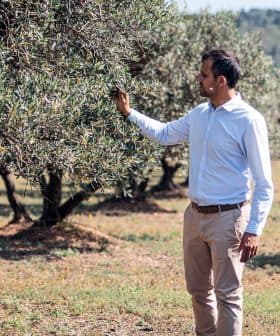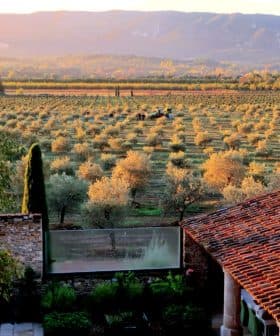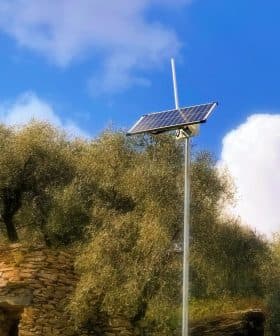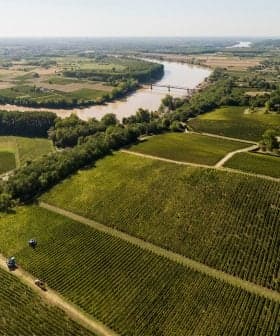EU Grants PDO Status to Olive Oils of Provence
Provençal olive oil represents distinctive organoleptic characteristics, unique chemistry and strong historical ties to the land.
Provence olive oil has been granted Protected Designation of Origin status by the European Union, with the PDO applying to extra virgin olive oil made exclusively by mechanical means and containing at least 20 percent of specific cultivars. The area of production for Provence olive oil is small, with 183 certified growers producing approximately 240,000 liters annually in a region with unique climatic conditions that contribute to the oil’s special characteristics.
Provence olive oil, huile d’olive de Provence, has been given Protected Designation of Origin (PDO) status by the European Union.
(The olives) thrive in the special climatic conditions provided by the strong western winds, plentiful rain and unique stony soil.
The PDO applies to extra virgin olive oil obtained exclusively by mechanical means and comprised of at least 20 percent Aglandau, Bouteillan, Cayon or Salonenque cultivars, according to the French National Institute of Origin and Quality (INAO).
The area of production for Provence olive oil is just 2,014 acres and stretches along the southern French coast, near Marseille. In this small geographical indicator, 183 certified growers in the region produce approximately 240,000 liters of PDO Provence olive oil annually at just 59 mills.
See Also:Protected Designations of Origin“In that area, located in the south of France, there are almost two million olive trees,” Nazareno Rossi, a small importer of typical French food and wine in central Italy, told Olive Oil Times. “They thrive in the special climatic conditions provided by the strong western winds, plentiful rain and unique stony soil.”
“Those conditions are quite different from what we find elsewhere in Europe, be it in the olive groves of Tuscany or Spain,” he added. “That is probably why they believe that the olive oil from this specific region has special characteristics.”
INAO identified two different olive oils that can be produced under the new PDO.
The first one is an extra virgin olive oil that is extracted from olives processed by the mills within four days of harvesting. The final product is characterized by a mildly spicy and slightly bitter flavor, with a taste of fresh grass and artichoke.
The second accepted PDO Provence olive oil comes from recently ripened olives, with almost no bitter nor spicy flavors, but plenty of black olives aroma, candied fruit and undergrowth.
Along with its distinctive organoleptic qualities, the chemical properties of Provence olive oil also help to define it.
“It is renowned for its contribution in four essential fatty acids: palmitoleic acid, margaroleic acid, vaccenic acid, linoleic acid,” INAO said in a statement.
Local experts also point out that Provence olive oil is a historic product and part of the region’s olive oil culture. According to INAO, olive oil has been produced by the inhabitants of the region for more than 2,000 years. Ruins of ancient mills for olive pressing date back to the sixth century BCE.
The eagerly-awaited announcement comes 13 years after the French government named a larger region on the southern French coast an Appellation of Controlled Origin (AOC) for Provence olive oil.









